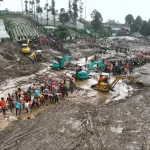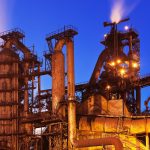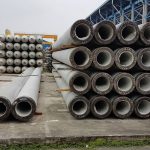Liga Asuransi – Behind the rumbling machinery that powers major projects are vital assets that are the lifeblood of every company in the construction, mining, and logistics sectors. They are: heavy equipment. The extraordinary investment value of heavy equipment makes every owner and project manager focus on one thing: heavy equipment maintenance. Common wisdom holds that with rigorous preventive maintenance, all risks can be controlled. But is this really true?
The notion that perfect maintenance guarantees absolute safety against all threats is a dangerous illusion. While maintenance is fundamental to maintaining machine performance, it cannot protect against unforeseen external threats, such as fires, tragic accidents, or natural disasters. The financial losses caused by these events can far exceed the cost of repairs and even threaten a company’s survival.
This article will take you beyond the familiar routine maintenance tips. We’ll break down the five most common maintenance tips one by one, then strategically direct your attention to the most crucial protection gaps. Ultimately, we’ll prove that heavy equipment insurance, it’s not just an option, but a financial bulwark that’s inseparable from maintenance. Both are two sides of the same coin that every wise asset owner should possess.
Routine Maintenance Only Addresses Internal Risks (Machine Accidents)
One of the key pillars of heavy equipment maintenance is maintaining the engine’s health from the inside. This is a proactive practice that includes a regular maintenance schedule, such as timely oil and filter changes, and lubrication. These actions effectively prevent damage originating from within the engine itself.internal damage), such as bearing wear, corrosion, or overheating due to dirty, un-changed oil. A well-maintained engine will perform optimally, save fuel, and extend its lifespan.
However, this maintenance cannot protect against external threats. What happens if your heavy equipment is completely destroyed by a fire caused by an electrical short circuit on a project site or a serious road accident while in transit? Even the most meticulous maintenance cannot restore a burned or destroyed asset. Even a newly serviced machine can be destroyed in a matter of seconds. This is where heavy equipment insurance comes in, filling the protection gap by covering losses from unavoidable external risks, ensuring that your assets have a financial safety net.
Daily Checks Cannot Prevent Accidents Caused by Human Factors
As part of tips for maintaining heavy equipment which is always taught, daily checks on tires, track, and hydraulic systems are crucial. This procedure can detect minor issues like low tire pressure or unseen hydraulic leaks before they become major problems that halt operations. This practice demonstrates a commitment to quality and safety.
However, these checks cannot predict or prevent accidents caused by human factors beyond your control. Imagine a scenario where another operator driving a truck or car on a project site is negligent and crashes into your equipment. Or an accident occurs due to fatigue on a night shift. Maintenance cannot prevent collisions. When your heavy equipment crashes into public property or causes injury to a third party, the financial losses can be substantial. This is where, Third Party Liability Insurance plays a role, protecting you from financial claims if your heavy equipment causes damage to property or other individuals. This is heavy equipment financial protection which cannot be replaced by treatment.
The Best Oils and Lubricants Are Powerless Against Natural Disasters
Using high-quality oils and lubricants is key to maintaining optimal engine performance and is one of the tips for extending the life of heavy equipment. These products protect components from normal wear and tear. But what about the unexpected? What if a major flood inundates a project site, causing severe damage to machinery, electrical systems, and other vital components? Or if an earthquake knocks out power?tower craneCollapse? Even the best care in the world cannot fight the forces of nature.
Without construction equipment insurance that covers natural disasters, your entire investment could be lost in an instant. Choosing the right heavy equipment insurance means you have a safety net when unforeseen circumstances arise. An insurance policy will cover losses due to floods, earthquakes, volcanic eruptions, or hurricanes, ensuring your working capital is not wiped out. This is no longer just an option; it’s a necessity for business continuity.
Fuel Efficiency Doesn’t Matter If Equipment Is Lost Due to Theft
Many heavy equipment maintenance tips focus on efficiency, such as ensuring clean air filters to save on maintenance costs. All that efficiency is meaningless if your assets are lost. The risk of heavy equipment theft is a real threat, especially on unsecured project sites or when equipment is parked in the open.
Theft can result in the total loss of heavy equipment. No matter how fuel-efficient it is or how smoothly its engine operates, if the equipment is lost, your entire investment is lost. This is where insurance becomes crucial. There are types of insurance that specifically protect against the risk of total loss due to theft, ensuring that you don’t lose your entire investment.
Avoid Financial Disaster by Understanding Insurance Types
Once you understand that maintenance alone isn’t enough, the next step is understanding how to protect your assets with insurance. Heavy equipment insurance isn’t a single product, but rather an ecosystem of protection. Choosing the right policy is a strategic step that determines your ability to recover from a major loss.
- Comprehensive Insurance (Comprehensive):This is the most comprehensive coverage and ideal for high-value assets. This policy covers partial or total damage, loss, fire, and natural disasters. This option offers the greatest peace of mind, covering nearly all risks your heavy equipment may encounter on the project site or on the road.
- TLO Insurance (Total Loss Only):This type only provides compensation if the heavy equipment suffers a total loss. This includes damage beyond repair or loss due to theft. While TLO insurance premiums are more affordable, its coverage is very limited.
- Third Party Liability Insurance (Third-Party Liability):This policy is crucial for protecting against legal claims if your heavy equipment causes damage to another party. Legal fees, compensation, and third-party property repair costs can often be the largest financial loss you have to cover, often exceeding the value of the equipment itself.
Real Case Study: Why Treatment Alone Is Not Enough?
Let’s look at a fictional case study to prove the above argument. A construction company, PT Maju Jaya, is known for its excellent preventive maintenance of heavy equipment. They maintain a neat maintenance logbook and consistently use genuine spare parts. However, they don’t have insurance, believing their maintenance is sufficient, saving them Rp 50 million per year in premiums.
One afternoon, while returning from a project site, their Komatsu PC200 excavator collided with another truck. Both were crushed and completely burned. The accident also caused severe traffic congestion and damage to public infrastructure along the roadside.
Detailed Calculation of Financial Losses:
- Direct Costs (Physical Losses):
○ The new excavator cost Rp 2.5 billion. The equipment had to be replaced due to extensive damage.
○ Cost of repairing damaged public facilities: Rp 450 million. This includes repairs to the road median, light poles, and guardrails.
○ Compensation for the injured truck driver: Rp 250 million. This covers medical expenses, benefits, and compensation for lost earnings.
○ TOTAL Direct Costs: Rp 3.2 Billion.
- Indirect Costs (Business Losses):
○ Project penalty for delay: The contract stipulates a penalty of Rp 50 million per day. The project was halted for 20 days for investigation, cleaning, and installation of new equipment. Total penalty:Rp. 1 billion.
○ Replacement equipment rental costs: To continue the project, the company must rent a new excavator at a cost of IDR 20 million per day for 20 days. Total rental costs:Rp. 400 million.
○ Legal and litigation costs: Companies must pay lawyers to handle claims from various parties. These costs can reachRp. 200 million.
○ TOTAL Indirect Costs: Rp 1.6 Billion.
TOTAL OVERALL LOSS: Rp 4.8 Billion!
A loss of this magnitude could destroy a business. Compare that to the premium’s heavy equipment insurance which is only about 1-3% of the equipment’s annual value. In this case study, PT Maju Jaya could have paid a premium of around Rp 50 million, and the Rp 4.8 billion loss would have been covered by insurance, saving them from bankruptcy.
The Crucial Role of Insurance Brokers: A Bridge to the Best Protection
Choosing the right type of insurance can be confusing and time-consuming. This is where an insurance agent comes in.insurance broker becomes very crucial. A broker, such as L&G Insurance Broker, are your representatives, not the insurance company. They have access to a wide range of insurance products and can provide objective advice.
- Product Complexity:Heavy equipment insurance policies are complex. Brokers help you navigate complex policies, ensuring you understand every clause, exclusion, and condition in easy-to-understand language.
- Skills & Experience:Brokers have in-depth knowledge of the specific risks of the construction industry. They can recommend the most appropriate policy, even from an insurance company you’re unfamiliar with. The expert team at L&G Insurance Broker can analyze the unique risks of each piece of equipment and project, from crane insurance to other heavy equipment insurance.
- Best Negotiation:Brokers can compare quotes from dozens of insurance companies to ensure you get the best premium with the most comprehensive coverage. They will negotiate favorable terms for you, a service you can’t get if you buy a policy directly from an insurance company.
- Claim Assistance:In the event of an accident, a broker will act as your trusted advisor. They will help manage the entire claims process, ensure all paperwork is complete, and negotiate with the insurance company to ensure your claim is approved fairly and quickly. This assistance is invaluable when you’re in a panic and need to focus on addressing operational issues on the ground.
Conclusion: Care & Insurance, Two Sides of the Same Coin
A heavy equipment accident is more than just a work-related incident; it’s a financial catastrophe with a ripple effect. Maintenance is a crucial foundation, but insurance is the roof that protects against financial storms. The two complement each other to ensure the safety of your assets, smooth operations, and the sustainability of your business.
Smart heavy equipment owners focus not only on operational costs versus maintenance costs; they also focus on financial protection. A small investment in heavy equipment insurance premiums will yield peace of mind and significant protection. With the help of professionals like L&G Insurance Broker, You can ensure you have not only a policy, but also optimal protection tailored specifically to your industry’s needs. Don’t let one small accident destroy everything you’ve built.














